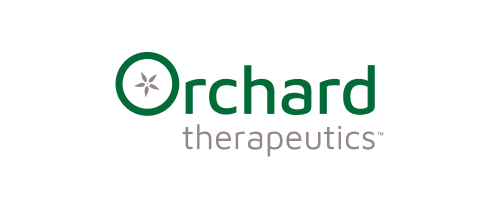Orchard Therapeutics: Accelerating Ultra-Rare
Disease Diagnosis with Real-Time
Data and Analytics
“Compass data helps the team identify the correct healthcare provider sooner, enabling the Orchard team to act fast and focus their educational efforts.”
Metachromatic leukodystrophy (MLD) is an ultra-rare, rapidly progressive, irreversible, and ultimately fatal neurometabolic disease, affecting approximately one in 100,000 live births. An error in the gene encoding the enzyme arylsulfatase A (ARSA) leads to neurological damage and developmental regression. In the most severe form of MLD, babies develop normally but, in late infancy, rapidly lose the ability to walk, talk, and interact with the world around them. These children eventually deteriorate into a vegetative state, and the majority pass away within five years of symptom onset.
Orchard Therapeutics, a Kyowa Kirin company, is a leader in global gene therapy. The team there discovers, develops, and commercializes new treatments for genetic and other severe diseases by tapping into the curative potential of hematopoietic stem cell (HSC) gene therapy. In this approach, a patient’s own blood stem cells are genetically modified outside of the body and then reinserted, correcting the underlying cause of disease with a single treatment. In March 2024, Orchard launched Lenmeldy™ (atidarsagene autotemcel), formerly known as OTL-200, the first FDA-approved therapy for the treatment of children with pre-symptomatic late infantile (PSLI), pre-symptomatic early juvenile, (PSEJ), or early symptomatic early juvenile (ESEJ) — collectively referred to as early-onset metachromatic leukodystrophy (MLD). Prior to Lenmeldy, there were no treatment options in the U.S. for early-onset MLD beyond supportive and end-of-life care.
Accelerating time to diagnosis
“Given the rarity of the disease, we are constantly educating medical teams on what to look for when trying to identify MLD, as a healthcare practitioner may only see one of these cases in their entire career,” says Brian Campbell, executive director of global commercial operations at Orchard Therapeutics. “Our company’s field footprint is relatively small, so we need to leverage data and analytics to the fullest extent to ensure we are spending time in places where children with MLD could potentially be identified or where there has been a recent diagnosis in order to have the highest possible impact on patient care.”
Given the rapid progression of the disease, early detection and diagnosis are essential to ensuring the best possible outcomes for patients. However, due to the ultra-rare incidence of the disease as well as the lack of newborn screening for MLD, many patients identified are too far progressed to benefit from gene therapy treatment. Therefore, one of Orchard’s operational goals is to help accelerate the time to diagnosis for children with MLD. Originally, the team used legacy data through a one-time data pull to help identify doctors treating this disease.
“We were using static data, which was immediately stale and didn’t represent what was actually going on in the changing landscape,” says Campbell. “We needed something as close to real-time as possible.”
With this in mind, Orchard Therapeutics developed a machine learning model using anonymous patient longitudinal data (APLD) to identify healthcare providers who may have late infantile and early juvenile MLD patients within their practice.
The company opted for Veeva Compass Patient as the data input for the machine learning model. Veeva Compass refreshes its claims data daily and provides direct access to the entire data network, delivering the complete history for a single patient, all via a cloud portal. This direct access to the latest data refresh ensures the machine learning model is as accurate and up-to-date as possible. Orchard also utilizes an MS Power BI interface with Power App integration to review the de-identified patient leads and claims history generated from the machine learning model and to provide validation, feedback, and activity tracking.
The result is now the generation of three to five de-identified patient lead alerts per week that Orchard can address.
“Our team needs to know right away if a healthcare provider has a potential patient so we can reach out to the medical team and provide education about MLD diagnostic testing and potential treatment options,” says Campbell. “It is important for physicians to conduct sibling screening when an older sibling is diagnosed with MLD because it is an autosomal recessive genetic disorder. When both parents are carriers, there is a 25 percent chance that each sibling may also be affected. Early identification enables timely testing, diagnosis, and treatment.”
“Compass data helps the team identify the correct healthcare provider sooner, enabling the Orchard team to act fast and focus their educational efforts,” he adds.
Orchard has validated their machine learning algorithm to predict potential MLD patients based on ICD10 code markers using Compass Patient data. It has deployed a workable model for alerts and triggers, including a recommended model threshold and summary of expected model precision and sensitivity. Orchard plans to continue using Compass Patient data for their MLD efforts as it looks to spread awareness of potential treatment options for this devastating ultra-rare disease.



